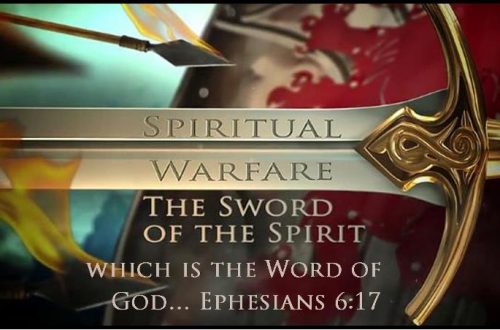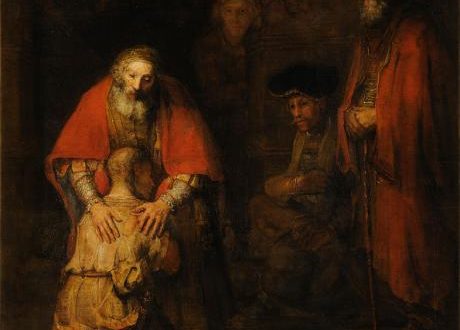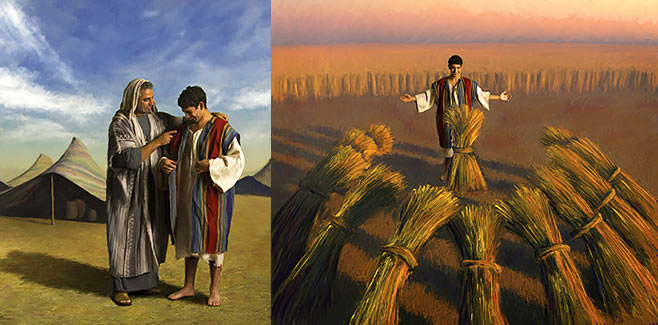
God’s Thoughts and Ways – Part VIII (Joseph)
Joseph from Servanthood to Ruler
Joseph knows from his youth that he will be a leader in charge of many. This is the destiny that God has put into his heart. However, those closest to him can not see it.
But Jacob lived in the land where his father had stayed, in the land of Canaan. This is the account of Jacob. Joseph, his seventeen-year-old son, was taking care of the flocks with his brothers. Now he was a youngster working with the sons of Bilhah and Zilpah, his father’s wives. Joseph brought back a bad report about them to their father. Now Israel loved Joseph more than all his sons because he was a son born to him late in life, and he made a special tunic for him. When Joseph’s brothers saw that their father loved him more than any of them, they hated Joseph and were not able to speak to him kindly. Joseph had a dream, and when he told his brothers about it, they hated him even more.He said to them, “Listen to this dream I had: There we were, binding sheaves of grain in the middle of the field. Suddenly my sheaf rose up and stood upright and your sheaves surrounded my sheaf and bowed down to it!” Then his brothers asked him, “Do you really think you will rule over us or have dominion over us?” They hated him even more because of his dream and because of what he said. Then he had another dream, and told it to his brothers. “Look,” he said. “I had another dream. The sun, the moon, and eleven stars were bowing down to me.” When he told his father and his brothers, his father rebuked him, saying, “What is this dream that you had? Will I, your mother, and your brothers really come and bow down to you? ”His brothers were jealous of him, but his father kept in mind what Joseph said. When his brothers had gone to graze their father’s flocks near Shechem, Israel said to Joseph, “Your brothers are grazing the flocks near Shechem. Come, I will send you to them.” “I’m ready,” Joseph replied. So Jacob said to him, “Go now and check on the welfare of your brothers and of the flocks, and bring me word.” So Jacob sent him from the valley of Hebron. When Joseph reached Shechem, a man found him wandering in the field, so the man asked him, “What are you looking for?” He replied, “I’m looking for my brothers. Please tell me where they are grazing their flocks.” The man said, “They left this area, for I heard them say, ‘Let’s go to Dothan.’ ” So Joseph went after his brothers and found them at Dothan. Now Joseph’s brothers saw him from a distance, and before he reached them, they plotted to kill him. They said to one another, “Here comes this master of dreams!Come now, let’s kill him, throw him into one of the cisterns, and then say that a wild animal ate him. Then we’ll see how his dreams turn out!” When Reuben heard this, he rescued Joseph from their hands, saying, “Let’s not take his life!”Reuben continued, “Don’t shed blood! Throw him into this cistern that is here in the wilderness, but don’t lay a hand on him.” (Reuben said this so he could rescue Joseph from them and take him back to his father.) When Joseph reached his brothers, they stripped him of his tunic, the special tunic that he wore. Then they took him and threw him into the cistern. (Now the cistern was empty; there was no water in it.) When they sat down to eat their food, they looked up and saw a caravan of Ishmaelites coming from Gilead. Their camels were carrying spices, balm, and myrrh down to Egypt. Then Judah said to his brothers, “What profit is there if we kill our brother and cover up his blood? Come, let’s sell him to the Ishmaelites, but let’s not lay a hand on him, for after all, he is our brother, our own flesh.” His brothers agreed. So when the Midianite merchants passed by, Joseph’s brothers pulled him out of the cistern and sold him to the Ishmaelites for twenty pieces of silver. The Ishmaelites then took Joseph to Egypt. Later Reuben returned to the cistern to find that Joseph was not in it! He tore his clothes, returned to his brothers, and said, “The boy isn’t there! And I, where can I go?” So they took Joseph’s tunic, killed a young goat, and dipped the tunic in the blood. Then they brought the special tunic to their father and said, “We found this. Determine now whether it is your son’s tunic or not.” He recognized it and exclaimed, “It is my son’s tunic! A wild animal has eaten him! Joseph has surely been torn to pieces!” Then Jacob tore his clothes, put on sackcloth, and mourned for his son many days. All his sons and daughters stood by him to console him, but he refused to be consoled. “No,” he said, “I will go to the grave mourning my son.” So Joseph’s father wept for him. Now in Egypt the Midianites sold Joseph to Potiphar, one of Pharaoh’s officials, the captain of the guard. (Genesis 37:1–36 NET)
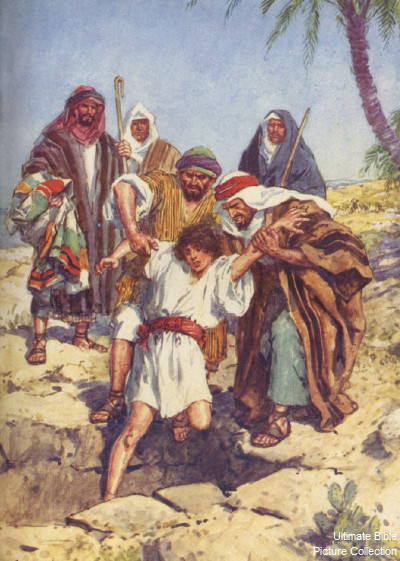
Joseph has been sold into slavery to a foreign nation with a foreign god for 20 pieces of silver, which was the conversion value of an Israelite from 5 to 19 years old. Recall Joseph was 17 years old when sold into captivity.
This is the account of Jacob. Joseph, his seventeen-year-old son, was taking care of the flocks with his brothers. Now he was a youngster working with the sons of Bilhah and Zilpah, his father’s wives. Joseph brought back a bad report about them to their father. (Genesis 37:2 NET)
If the person is from five years old up to twenty years old, the conversion value of the male is twenty shekels, and for the female ten shekels. (Leviticus 27:5 NET)
As a Jew, his life is over, for he is cut off from His people and no longer is an heir to his father’s fortunes. He is now just a piece of property, if he marries, it will be to a slave, and his children will be born into slavery. Now begins God’s process of developing Joseph to be ready to lead a nation.
Now Joseph had been brought down to Egypt. An Egyptian named Potiphar, an official of Pharaoh and the captain of the guard, purchased him from the Ishmaelites who had brought him there. The Lord was with Joseph. He was successful and lived in the household of his Egyptian master. His master observed that the Lord was with him and that the Lord made everything he was doing successful. So Joseph found favor in his sight and became his personal attendant. Potiphar appointed Joseph overseer of his household and put him in charge of everything he owned. From the time Potiphar appointed him over his household and over all that he owned, the Lord blessed the Egyptian’s household for Joseph’s sake. The blessing of the Lord was on everything that he had, both in his house and in his fields.So Potiphar left everything he had in Joseph’s care; he gave no thought to anything except the food he ate. Now Joseph was well built and good-looking. (Genesis 39:1–6 NET)
God the Father sent Joseph to Supply Physical Bread to Save the World from Physical Death Approximately 2000 years Earlier (Circa 1899 B.C.)
Joseph is the beloved son (Genesis 37:3) (15)
Joseph was given a special name (Genesis 37:2), meaning: may God add; he shall add; increasing; (14) abundance; a multiplier (15)
Joseph testified against the world that its deeds are evil (Genesis 37:2)
Joseph was given special recognition by his father (Genesis 37:3)
Joseph told his brethren of His future dominion, and he and his Father were hated for it by them; in their arrogance, they did not desire his leadership (Genesis 37:4-11)
Joseph was sent by His Father on behalf of his brethren and went to them willingly (Genesis 37:13,14)
Joseph’s brethren, the ones He was sent on behalf of, conspired to have him killed (Genesis 37:18)
Joseph was stripped out of his seamless robe. (Genesis 37:23)
Joseph was cast into a pit (Genesis 37:24)
Joseph was sold into captivity in exchange for pieces of silver (Genesis 37:28)
Joseph was slain (in his father’s eyes) as evidenced by blood (Genesis 37:31-33)
Joseph is exalted (Genesis 41:38-44)
Joseph is given a new name (Genesis 41:45): Zaphnathpaaneah [Zaphnath-Paneah] (zaf’-nath-pa-a-ne’-ah) = Savior of the age; Savior of the world; giver of the nourishment of life; prince of the life of the age; revealer of a secret. (17)
Joseph is given a Gentile bride (Genesis 41:45)
Joseph provides bread without measure for the dying world (Genesis 41:49. Genesis 41:55-57)
Slavery cannot keep a leader down – Joseph rises to be the lead servant!
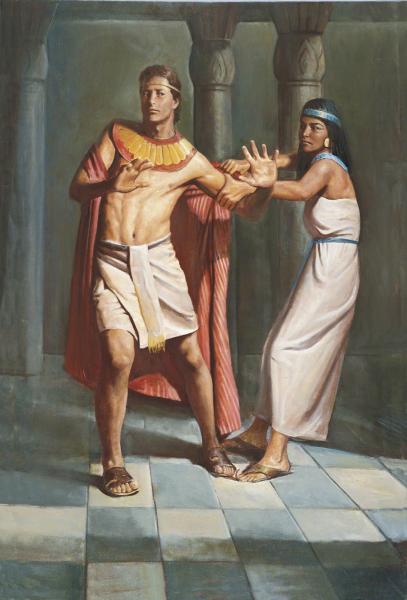
Soon after these things, his master’s wife took notice of Joseph and said, “Have sex with me.”But he refused, saying to his master’s wife, “Look, my master does not give any thought to his household with me here, and everything that he owns he has put into my care. There is no one greater in this household than I am. He has withheld nothing from me except you because you are his wife. So how could I do such a great evil and sin against God?” Even though she continued to speak to Joseph day after day, he did not respond to her invitation to have sex with her. One day he went into the house to do his work when none of the household servants were there in the house. She grabbed him by his outer garment, saying, “Have sex with me!” But he left his outer garment in her hand and ran outside. When she saw that he had left his outer garment in her hand and had run outside, she called for her household servants and said to them, “See, my husband brought in a Hebrew man to us to humiliate us. He tried to have sex with me, but I screamed loudly. When he heard me raise my voice and scream, he left his outer garment beside me and ran outside.” So she laid his outer garment beside her until his master came home. This is what she said to him: “That Hebrew slave you brought to us tried to humiliate me, but when I raised my voice and screamed, he left his outer garment and ran outside.” When his master heard his wife say, “This is the way your slave treated me,” he became furious. Joseph’s master took him and threw him into the prison, the place where the king’s prisoners were confined. So he was there in the prison. (Genesis 39:7–20 NET)
Joseph did not touch the wife (1) of his master even when she insisted (Proverbs 7). Joseph exemplified character by not abusing the power entrusted to him (1). However, his character was only rewarded with imprisonment.
But the Lord was with Joseph and showed him kindness. He granted him favor in the sight of the prison warden. The warden put all the prisoners under Joseph’s care. He was in charge of whatever they were doing. The warden did not concern himself with anything that was in Joseph’s care because the Lord was with him and whatever he was doing the Lord was making successful. (Genesis 39:21–23 NET)
Joseph chooses to get better, not bitter. Prison would not be his tombstone but rather his stepping-stone! Realize, Egyptian prisons were caves with a four-foot ceiling dug out underground—no lights, chained, old bread and water, no HVAC, rats, bugs, etc. Nevertheless, Joseph again rises to be the lead prisoner!
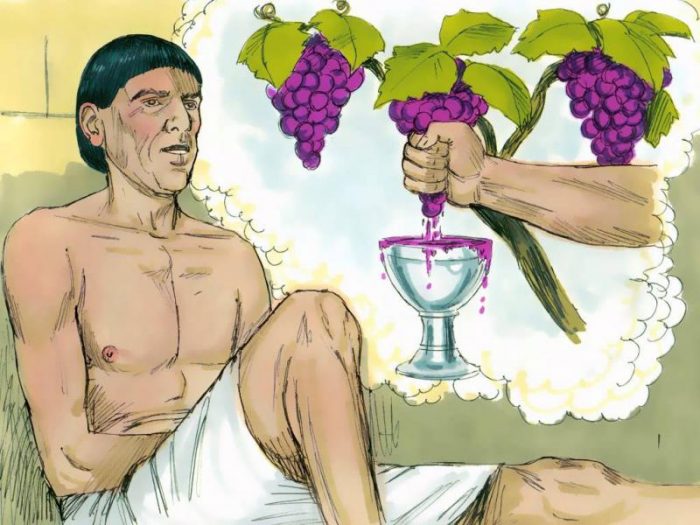
After these things happened, the cupbearer to the king of Egypt and the royal baker offended their master, the king of Egypt. Pharaoh was enraged with his two officials, the cupbearer and the baker, so he imprisoned them in the house of the captain of the guard in the same facility where Joseph was confined. The captain of the guard appointed Joseph to be their attendant, and he served them. They spent some time in custody. Both of them, the cupbearer and the baker of the king of Egypt, who were confined in the prison, had a dream the same night. Each man’s dream had its own meaning. When Joseph came to them in the morning, he saw that they were looking depressed. So he asked Pharaoh’s officials, who were with him in custody in his master’s house, “Why do you look so sad today?” They told him, “We both had dreams, but there is no one to interpret them.” Joseph responded, “Don’t interpretations belong to God? Tell them to me.” So the chief cupbearer told his dream to Joseph: “In my dream, there was a vine in front of me. On the vine there were three branches. As it budded, its blossoms opened and its clusters ripened into grapes. Now Pharaoh’s cup was in my hand, so I took the grapes, squeezed them into his cup, and put the cup in Pharaoh’s hand.” “This is its meaning,” Joseph said to him. “The three branches represent three days. In three more days Pharaoh will reinstate you and restore you to your office. You will put Pharaoh’s cup in his hand, just as you did before when you were cupbearer. But remember me when it goes well for you, and show me kindness. Make mention of me to Pharaoh and bring me out of this prison, for I really was kidnapped from the land of the Hebrews and I have done nothing wrong here for which they should put me in a dungeon.” When the chief baker saw that the interpretation of the first dream was favorable, he said to Joseph, “I also appeared in my dream and there were three baskets of white bread on my head. In the top basket there were baked goods of every kind for Pharaoh, but the birds were eating them from the basket that was on my head.” Joseph replied, “This is its meaning: The three baskets represent three days. In three more days Pharaoh will decapitate you and impale you on a pole. Then the birds will eat your flesh from you.” On the third day it was Pharaoh’s birthday, so he gave a feast for all his servants. He “lifted up” the head of the chief cupbearer and the head of the chief baker in the midst of his servants. He restored the chief cupbearer to his former position so that he placed the cup in Pharaoh’s hand, but the chief baker he impaled, just as Joseph had predicted. But the chief cupbearer did not remember Joseph—he forgot him. (Genesis 40:1–23 NET)
Joseph does miraculous work in interpreting the dreams; however, it is soon forgotten. His goodness is again rewarded with continued slavery.
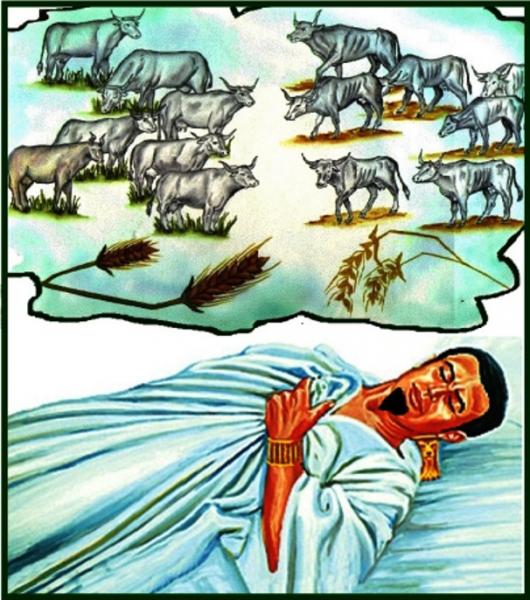
At the end of two full years Pharaoh had a dream. As he was standing by the Nile, seven fine-looking, fat cows were coming up out of the Nile, and they grazed in the reeds. Then seven bad-looking, thin cows were coming up after them from the Nile, and they stood beside the other cows at the edge of the river.The bad-looking, thin cows ate the seven fine-looking, fat cows. Then Pharaoh woke up. Then he fell asleep again and had a second dream: There were seven heads of grain growing on one stalk, healthy and good. Then seven heads of grain, thin and burned by the east wind, were sprouting up after them. The thin heads swallowed up the seven healthy and full heads. Then Pharaoh woke up and realized it was a dream. In the morning he was troubled, so he called for all the diviner-priests of Egypt and all its wise men. Pharaoh told them his dreams, but no one could interpret them for him. Then the chief cupbearer said to Pharaoh, “Today I recall my failures. Pharaoh was enraged with his servants, and he put me in prison in the house of the captain of the guards—me and the chief baker. We each had a dream one night; each of us had a dream with its own meaning. Now a young man, a Hebrew, a servant of the captain of the guards, was with us there. We told him our dreams, and he interpreted the meaning of each of our respective dreams for us. It happened just as he had said to us—Pharaoh restored me to my office, but he impaled the baker.” Then Pharaoh summoned Joseph. So they brought him quickly out of the dungeon; he shaved himself, changed his clothes, and came before Pharaoh. Pharaoh said to Joseph, “I had a dream, and there is no one who can interpret it. But I have heard about you, that you can interpret dreams.”Joseph replied to Pharaoh, “It is not within my power, but God will speak concerning the welfare of Pharaoh.” Then Pharaoh said to Joseph, “In my dream I was standing by the edge of the Nile. Then seven fat and fine-looking cows were coming up out of the Nile, and they grazed in the reeds.Then seven other cows came up after them; they were scrawny, very bad-looking, and lean. I had never seen such bad-looking cows as these in all the land of Egypt! The lean, bad-looking cows ate up the seven fat cows. When they had eaten them, no one would have known that they had done so, for they were just as bad-looking as before. Then I woke up. I also saw in my dream seven heads of grain growing on one stalk, full and good. Then seven heads of grain, withered and thin and burned with the east wind, were sprouting up after them. The thin heads of grain swallowed up the seven good heads of grain. So I told all this to the diviner-priests, but no one could tell me its meaning.” Then Joseph said to Pharaoh, “Both dreams of Pharaoh have the same meaning. God has revealed to Pharaoh what he is about to do. The seven good cows represent seven years, and the seven good heads of grain represent seven years. Both dreams have the same meaning.The seven lean, bad-looking cows that came up after them represent seven years, as do the seven empty heads of grain burned with the east wind. They represent seven years of famine. This is just what I told Pharaoh: God has shown Pharaoh what he is about to do. Seven years of great abundance are coming throughout the whole land of Egypt. But seven years of famine will occur after them, and all the abundance will be forgotten in the land of Egypt. The famine will devastate the land. The previous abundance of the land will not be remembered because of the famine that follows, for the famine will be very severe.The dream was repeated to Pharaoh because the matter has been decreed by God, and God will make it happen soon. “So now Pharaoh should look for a wise and discerning man and give him authority over all the land of Egypt. Pharaoh should do this—he should appoint officials throughout the land to collect one-fifth of the produce of the land of Egypt during the seven years of abundance. They should gather all the excess food during these good years that are coming. By Pharaoh’s authority they should store up grain so the cities will have food, and they should preserve it.This food should be held in storage for the land in preparation for the seven years of famine that will occur throughout the land of Egypt. In this way the land will survive the famine.” This advice made sense to Pharaoh and all his officials. So Pharaoh asked his officials, “Can we find a man like Joseph, one in whom the Spirit of God is present?” So Pharaoh said to Joseph, “Because God has enabled you to know all this, there is no one as wise and discerning as you are! You will oversee my household, and all my people will submit to your commands. Only I, the king, will be greater than you. “See here,” Pharaoh said to Joseph, “I place you in authority over all the land of Egypt.”Then Pharaoh took his signet ring from his own hand and put it on Joseph’s. He clothed him with fine linen clothes and put a gold chain around his neck. Pharaoh had him ride in the chariot used by his second-in-command, and they cried out before him, “Kneel down!” So he placed him over all the land of Egypt. Pharaoh also said to Joseph, “I am Pharaoh, but without your permission no one will move his hand or his foot in all the land of Egypt.” (Genesis 41:1–44 NET)
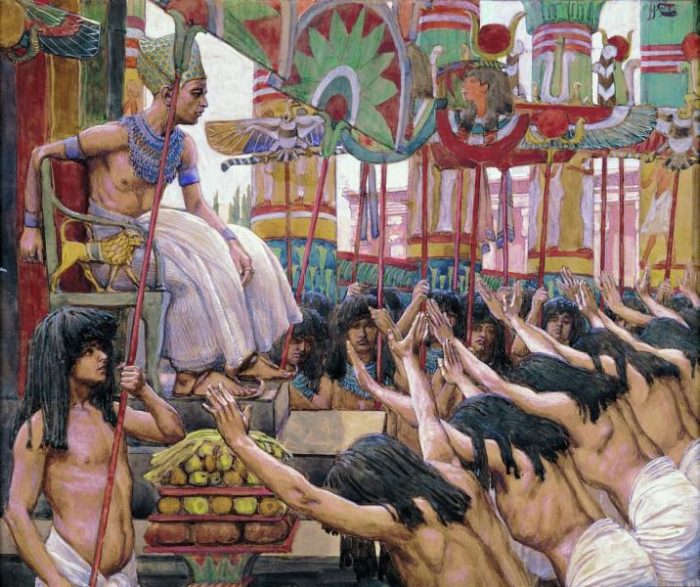
Joseph the servant becomes second to the Pharaoh of Egypt, the only superpower on Earth at that time.
Pharaoh gave Joseph the name Zaphenath-Paneah. He also gave him Asenath daughter of Potiphera, priest of On, to be his wife. So Joseph took charge of all the land of Egypt. Now Joseph was 30 years old when he began serving Pharaoh king of Egypt. Joseph was commissioned by Pharaoh and was in charge of all the land of Egypt. During the seven years of abundance the land produced large, bountiful harvests. Joseph collected all the excess food in the land of Egypt during the seven years and stored it in the cities. In every city he put the food gathered from the fields around it. Joseph stored up a vast amount of grain, like the sand of the sea, until he stopped measuring it because it was impossible to measure. Two sons were born to Joseph before the famine came. Asenath daughter of Potiphera, priest of On, was their mother. Joseph named the firstborn Manasseh, saying, “Certainly God has made me forget all my trouble and all my father’s house.” He named the second child Ephraim, saying, “Certainly God has made me fruitful in the land of my suffering.” The seven years of abundance in the land of Egypt came to an end. Then the seven years of famine began, just as Joseph had predicted. There was famine in all the other lands, but throughout the land of Egypt there was food. When all the land of Egypt experienced the famine, the people cried out to Pharaoh for food. Pharaoh said to all the people of Egypt, “Go to Joseph and do whatever he tells you.” While the famine was over all the earth, Joseph opened the storehouses and sold grain to the Egyptians. The famine was severe throughout the land of Egypt. People from every country came to Joseph in Egypt to buy grain because the famine was severe throughout the earth. (Genesis 41:45–57 NET)
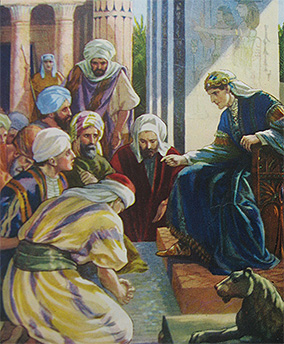
Concerning Joseph’s childhood dream about his family bowing down before him:
When Jacob heard there was grain in Egypt, he said to his sons, “Why are you looking at each other?”He then said, “Look, I hear that there is grain in Egypt. Go down there and buy grain for us so that we may live and not die.” So ten of Joseph’s brothers went down to buy grain from Egypt. But Jacob did not send Joseph’s brother Benjamin with his brothers, for he said, “What if some accident happens to him?” So Israel’s sons came to buy grain among the other travelers, for the famine was severe in the land of Canaan. Now Joseph was the ruler of the country, the one who sold grain to all the people of the country. Joseph’s brothers came and bowed down before him with their faces to the ground. (Genesis 42:1–6 NET)
Oh, that we all were as noble as Joseph!
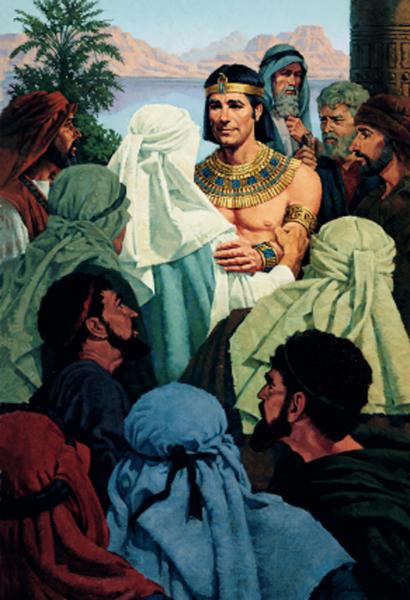
Then his brothers also came and threw themselves down before him; they said, "Here we are; we are your slaves." But Joseph answered them, "Don't be afraid. Am I in the place of God? As for you, you meant to harm me, but God intended it for a good purpose, so he could preserve the lives of many people, as you can see this day. So now, don't be afraid. I will provide for you and your little children." Then he consoled them and spoke kindly to them. (Genesis 50:18-21 NET)
Joseph’s path to the top was not in college degrees, knowing the right people, or marketing himself. His strength was in Godly character refined in the afflictions (1) of a servant’s life. Consequently, Joseph did not let the praise of his new position fill him with hubris, but rather, he remained humble and full of mercy. (Proverbs 27:21. Micah 6:8)
That is, Joseph had suffered (1) effectively! (1).
Look, I have refined you, but not as silver; I have purified you in the furnace of misery. (Isaiah 48:10 NET)
Before destruction the heart of a person is proud, but humility comes before honor. (Proverbs 18:12 NET)
But Jesus called them and said, “You know that the rulers of the Gentiles lord it over them, and those in high positions use their authority over them. It must not be this way among you! Instead whoever wants to be great among you must be your servant, and whoever wants to be first among you must be your slave—just as the Son of Man did not come to be served but to serve, and to give his life as a ransom for many.” (Matthew 20:25–28 NET)(2)
God the Father sent Jesus to Supply Spiritual Bread to Save the World from Spiritual Death
Jesus is the beloved son (Matthew 3:17;17:5) ) (15)
Jesus (Hb., Yeshua) was given a special name (Matthew 1:21), meaning: God is Salvation, Savior (14)
Jesus testified against the world that its deeds are evil (John 7:7)
Jesus was given special recognition by His Father (Matthew 3:16)
Jesus told his brethren of His future dominion, and he and his Father were hated for it by them; in their arrogance, they did not desire his leadership (Matthew 26:64-66. Matthew 27:18. John 1:11. John 15:24. Luke 19:14)
Jesus was sent by His Father on behalf of His brethren and went to them willingly (1 John 4:10. Hebrews 10:9)
Jesus’ brethren, the ones He was sent on behalf of, conspired to have Him killed (Matthew 26:3,4)
Jesus was stripped out of his seamless robe. (Matthew 27:26-29)
Jesus was sold into captivity in exchange for pieces of silver (Matthew 26:14,15)
Jesus was cast into a pit (Matthew 12:39,40. Acts 2:24-28. Romans 10:7,8)
Jesus was slain as evidenced by blood (John 19:33,34)
Jesus is exalted (Acts 5:31. Hebrews 1:1-12. 1 Peter 3:21,22)
Jesus is given a new name (Ephesians 1:20,21. Philippians 2:9-11. Revelation 19:12)
Jesus is given a Gentile (and Jewish) Bride (Ephesians 5:23-25)
Jesus provides bread without measure for the dying world (John 6:35,48,51. Acts 4:12)
“…Joseph, a man rejected by his brothers, falsely accused, and suffering for the sins of others – yet ending up the savior of a nation – a foreshadow of the coming Messiah.” (3)
Our ways are not God’s ways… (Isaiah 55:8,9), but they will be… (1 John 3:2. 1 Corinthians 13:12).
God’s Thoughts and Ways Series:
- God’s Thoughts and Ways – Part I (Jeroboam)
- God’s Thoughts and Ways – Part II (Paul)
- God’s Thoughts and Ways – Part III (Lazarus)
- God’s Thoughts and Ways – Part IV (Balaam)
- God’s Thoughts and Ways – Part V (King Saul)
- God’s Thoughts and Ways – Part VI (Abel and Cain)
- God’s Thoughts and Ways – Part VII (National Judgment)
- God’s Thoughts and Ways – Part VIII (Joseph)
- God’s Thoughts and Ways – Part IX (Peter)
- God’s Thoughts and Ways – Part X (Invitation, Refusal, Banishment)
- God’s Thoughts and Ways – Part XI (Mary Mother of Jesus)
- God’s Thoughts and Ways – Part XII (Zipporah, Wife of Moses)
Shalom
(Security, Wholeness, Success)
Peace
Then he said to them, “Therefore every expert in the law who has been trained for the kingdom of heaven is like the owner of a house who brings out of his treasure what is new and old.” (Matthew 13:52 NET)
(1) Select the link to open another article with additional information in a new tab.
(2) For additional insights into the story of Joseph, see Ellel Ministries Devotion Fruitfulness in the Land of Suffering by Sue Dare.
(3) Cahn, J. (2017). The paradigm: the ancient blueprint that holds the mystery of our times. Lake Mary, FL: Frontline.
(14) Smith, S., & Cornwall, J. (1998). In The exhaustive dictionary of Bible names (p. 149). North Brunswick, NJ: Bridge-Logos.
(15) Rogers, A. (2017). The Gospel according to Joseph. In Adrian Rogers Sermon Archive (Genesis 41–45). Signal Hill, CA: Rogers Family Trust.
(17) Smith, S., & Cornwall, J. (1998). In The exhaustive dictionary of Bible names (p. 247). North Brunswick, NJ: Bridge-Logos.


